SPECIAL
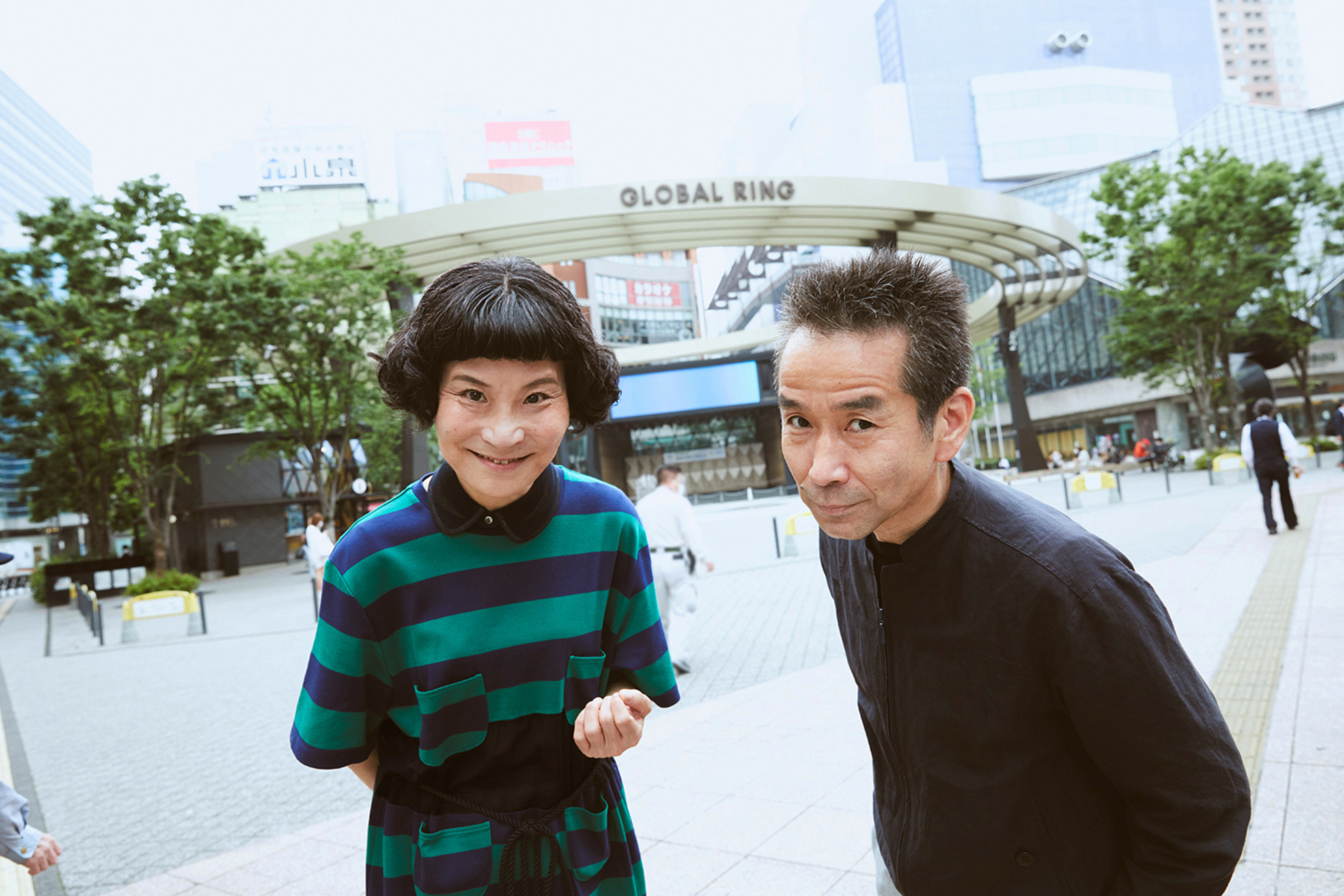
Outdoor Theatre Performance “Wuthering Heights” Shuji Onodera ×Hairi Katagiri interview(Part 1)
A wind from England’s wild and lonely moors blows into Ikebukuro
What transpires is no mere love story...(Part 1)
In the last few years, we have had a taste of our impotence as humans by force of circumstance. We have realized that nature is so irrational and unreasonable that it goes far beyond human imagination.People interpret it in different ways, with some probably cursing it and feeling embittered, while others see nature as having some kind of self-cleansing effect.
In fall 2022, the Outdoor TheatrePerformance “Wuthering Heights,”part of Tokyo Festival’s main program being staged at GLOBAL RING THEATRE (Ikebukuro Nishi-guchi Park Outdoor Theatre), will be directed by Company Derashinera leader Shuji Onodera, who sees a series of recent natural phenomena as intersecting with the story of “Wuthering Heights.” Teaming up with Onodera for this production is his friend and collaborator for the past decade, actor Hairi Katagiri.
Under Onodera’s directing style (“Onodera-style theatre”), storylines are created through the process of rehearsal without relying on a script, and under the Outdoor Theatre Performance concept, the Ikebukuro area itself becomes an integral part of the stage setting. How will these fuse and develop? And what is the significance of staging “Wuthering Heights” at this time, and at this location?
We find out what’s going on now that pre-rehearsals are over, as we unravel the relationship between Onodera and Katagiri.
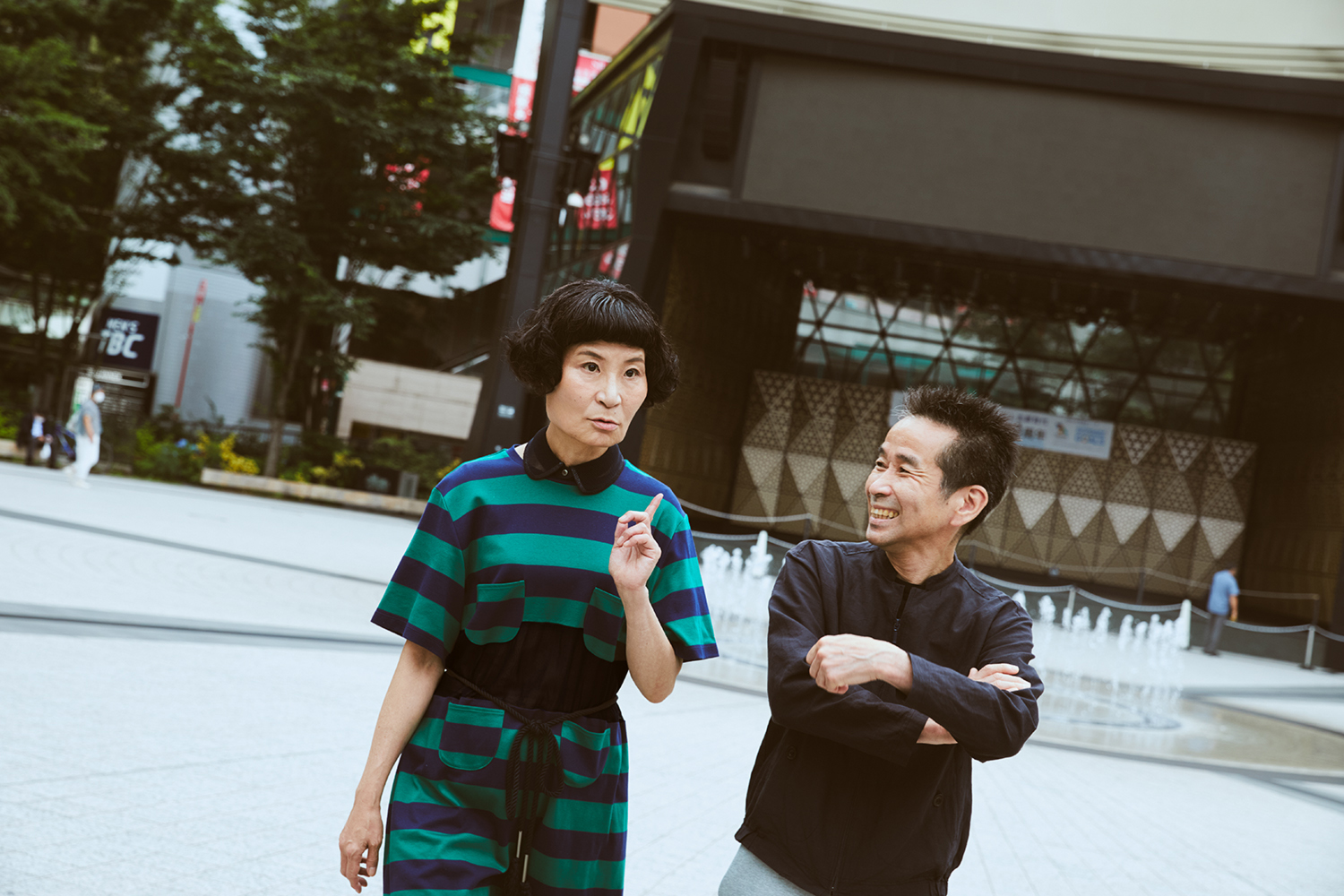
Twelve years of mutual trust built up through the exchange of hidden sparring
Katagiri: First of all, I want to say that this is the 40th anniversary of my stage debut. Just when I was feeling a bit “boo hoo” about not being involved in a single production despite this year being so significant for me, this role (for the Outdoor Theater Performance “Wuthering Heights”) came my way.
Onodera: Yay! I’m really sorry though – I sincerely forgot about your 40th anniversary.
Katagiri: It’s no big deal!
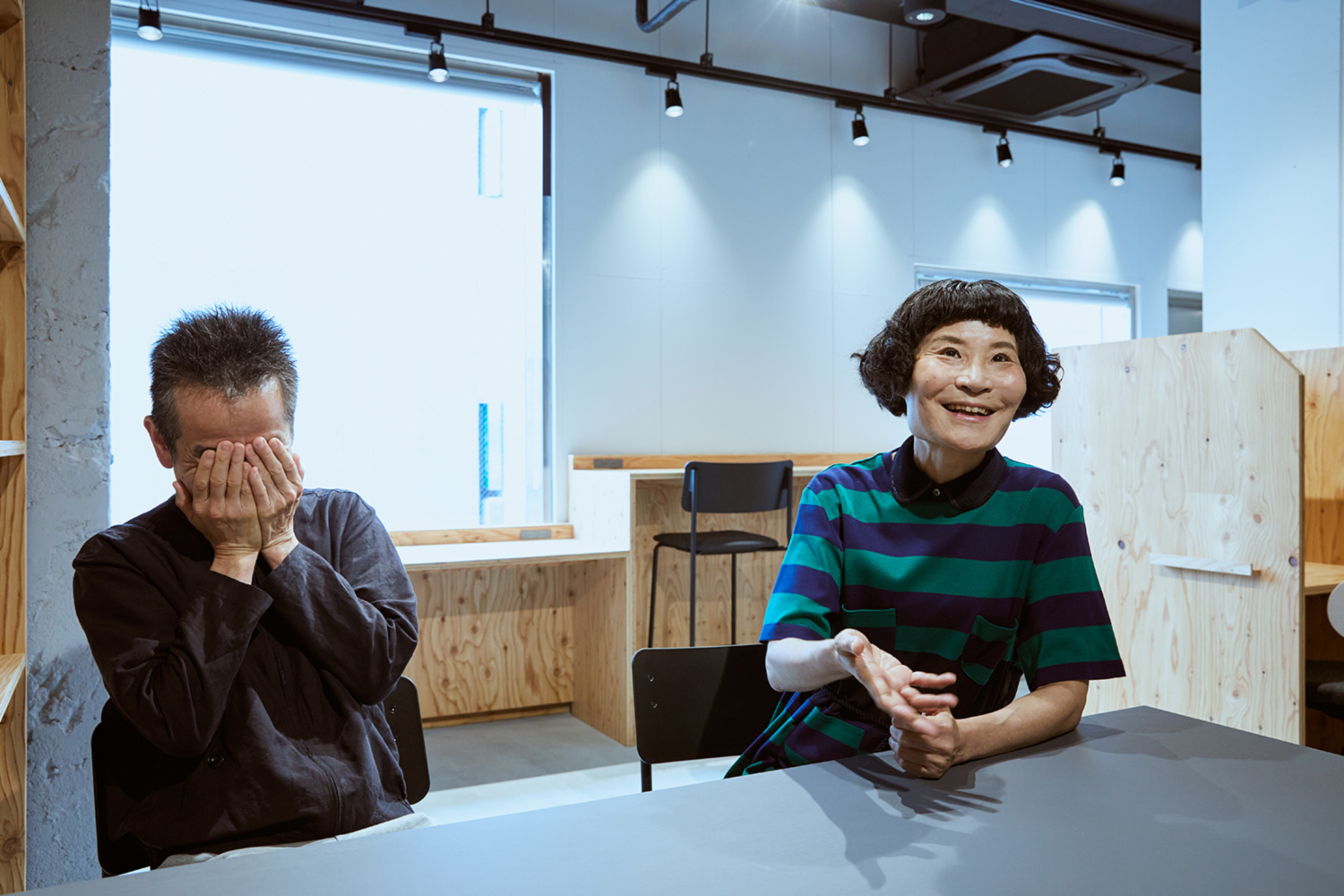
-So Katagiri-san, it’s the 40th anniversary of your stage debut. Congratulations again. That exchange shows the relationship between the two of you. Looking back, you have appeared together on stage and worked together many times over the past 12 years since the 2010 production of “The Stranger.”
Onodera: That’s right.
-Each time you’ve worked together, you’ve both made comments which give a sense of your mutual trust, like you Onodera-san calling Katagiri-san “the actress you trust most,” and you Katagiri-san talking about your relationship with Onodera-san, saying you feel like you share an evaluation of what seems interesting and well-timed. Can you tell us again what you find attractive about each other?
Onodera: It’s difficult to explain in one word but of course I have a self-serving admiration for Katagiri-san. And also maybe because ultimately, in all the time we’ve known each other and worked together, what I would like to do with Hairi-san hasn’t yet taken shape at all. She always has answers (towards making that happen), and it’s like my own growth combined with what Hairi-san is thinking provides a foundation for thinking about how to always move on to the next thing, or to go in a different direction.
Katagiri: I think it’s because we don’t completely see eye to eye.
Onodera: Yes (laughs). So actually, it’s not at all about her being easy to use (from a director’s point of view) or anything like that.
Katagiri: There are times when I’m not sure or don’t think something will be interesting to do. You can’t always express a role as instructed. It’s definitely a fight!
Onodera: I’m not sure I’d call it a fight...but anyway in that sense there’s a huge amount of trust. When we clash we’re able to have a discussion - "No, not like that, more like this,” that sort of thing -and we’re able to quarrel in front of other people. It’s rude to say things like this to a pro and a mentor, though....
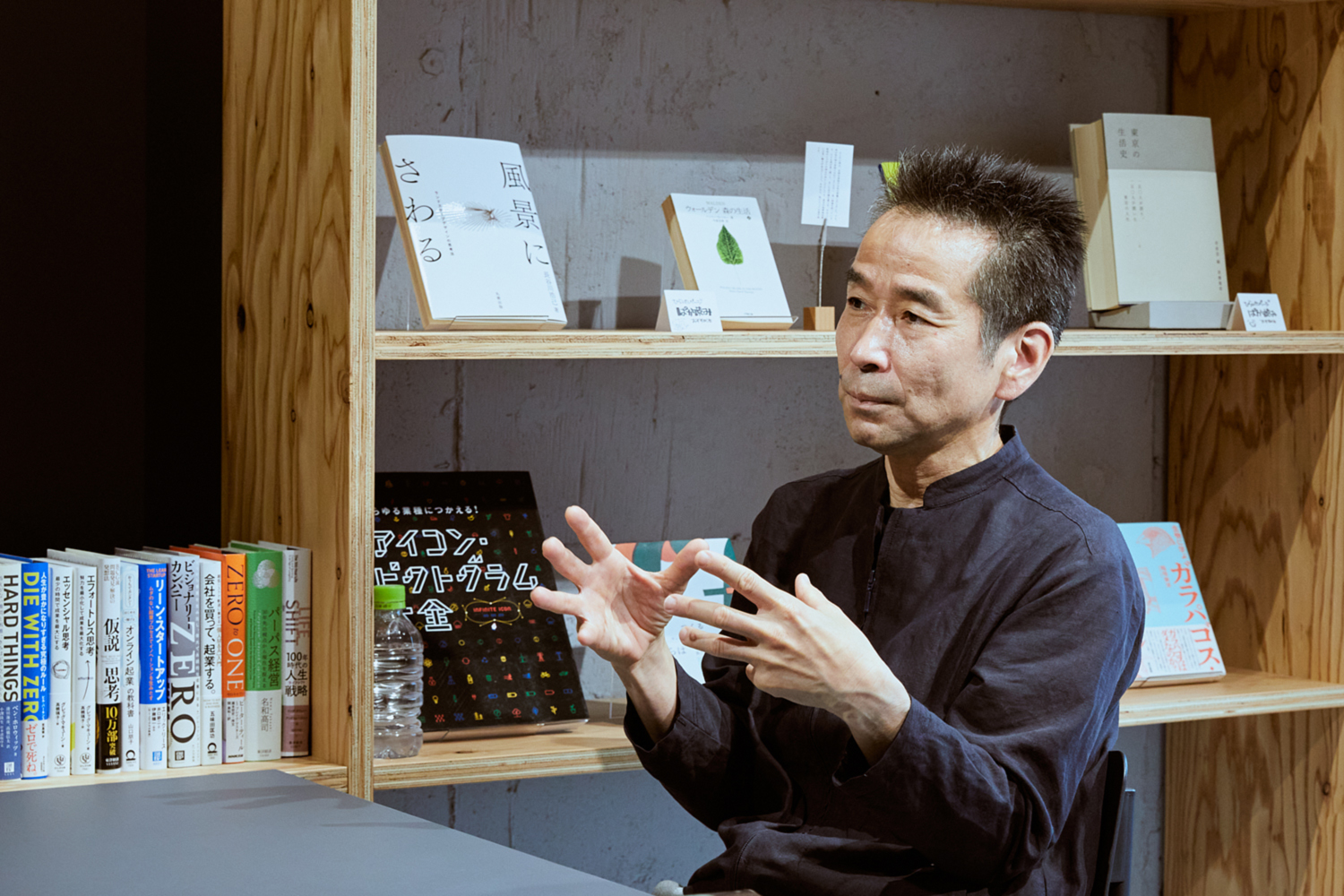
Katagiri: There may be some actors who are perfectly able to understand Onodera-san’s intentions, but I am incapable of it.I don’t and can’t.
Onodera: And I don’t think I want perfection either. So when I want to do something different, I feel very comfortable with the sense of distance Katagiri-san gives me when she’s on board, the way that we interact with each other. So when I’m about to do something willfully ambitious or reckless again, I end up leaning on Hairi-san. This project is no different.
- To expand on what you just talked about, the cast for so-called "Onodera-style theatre” create a stage work without a script through collaborative creation in workshops held during rehearsals. In that process, does it mean that Katagiri-san's presence leads you in an unexpected direction?
Onodera: Maybe her standing is different than other people’s. Collaborating with Katagiri-san has an element of being my life’s work, in a good way.
- Conversely, Katagiri-san, what is the appeal of Onodera-san for you?
Katagiri: Well I started out as what you might call a fan. When I saw "A Woman's House” (2008) directed by Onodera-san and starring Kazuyuki Asano the “god of theatre” (laughs), I was like, “Wow! That was amazing!” I do like the intensity of contemporary theatre, but what I like is a bit of silliness, or rather aspects that include flipping things around. I go crazy when I come across something like that. Onodera-san's productions have that quality.
- You mean when a feeling of design and effortlessness are combined.
Katagiri: Yes, and that’s a sensibility I really share with Onodera-san. I always say this but when Onodera-san first offered me a role he said “With your help I want to create something absurd,” and I accepted because I thought it was definitely the job for me. Because when people hear the words contemporary theatre or dance or mime, it seems to be something generally perceived as not highbrow exactly but a little pompous, or rather it isn’t seen as entertainment. That’s why if he had just told me he wanted to make a piece of entertainment, I may not have agreed (to the offer).”
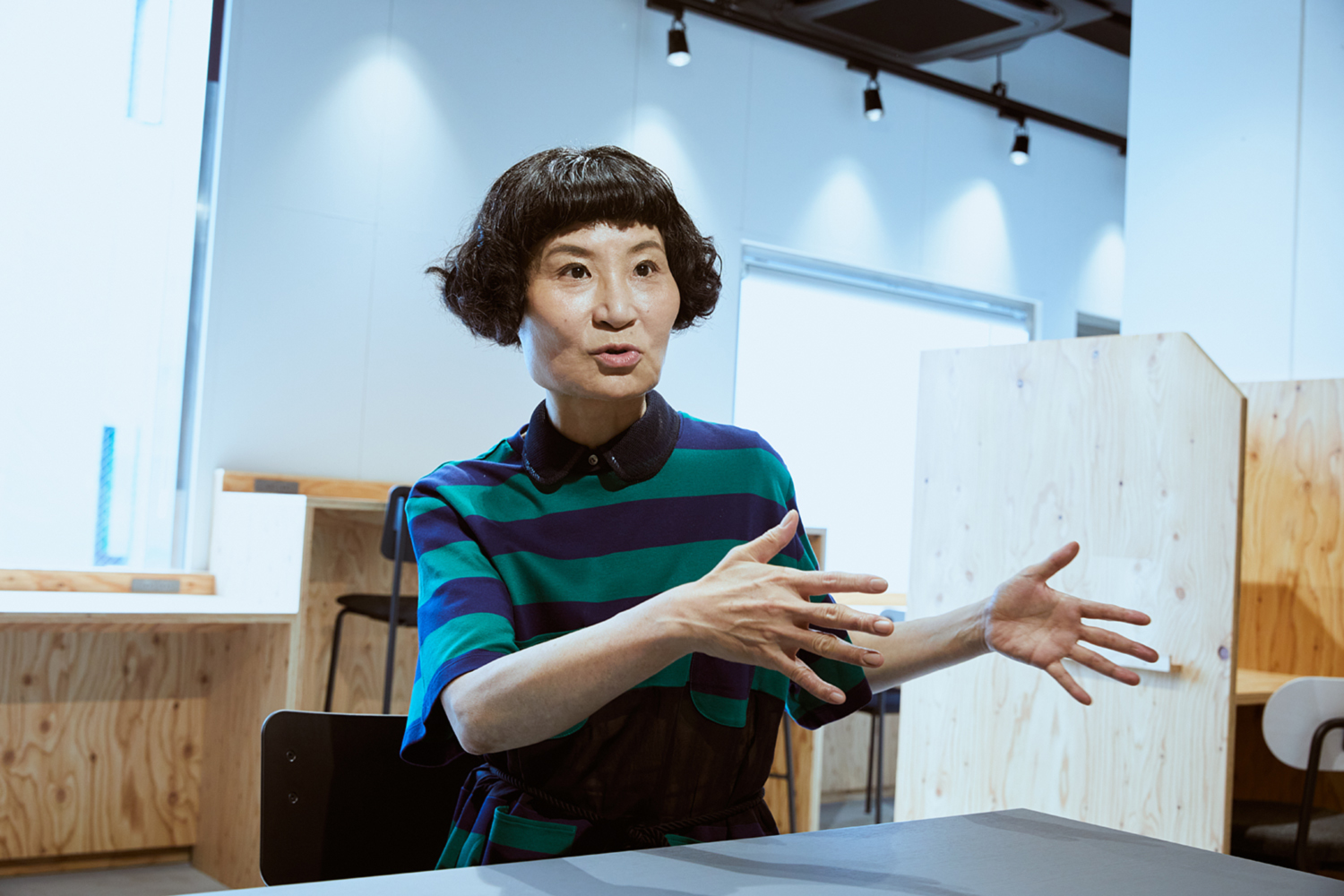
The gold standard stage drama of "Wuthering Heights" gets the "Onodera-style (outdoor) theatre” treatment
- Please tell us again the reason why you took on Emily Brontë‘s “Wuthering Heights,” known as one of the world’s three greatest tragedies.
Onodera: As I got older, I became interested in thinking how to confront nature in the broad sense. At this point I was asked to do an outdoor production, and it all began with my idea that it would be great if we, the cast, who usually work indoors, and the audience, could not only experience the sense of freedom and space of the outdoors, but also come face to face with nature. At that point, I didn't have a clear theme yet, but I had a vague feeling of wanting to create something based on a work by a female author, and I was doing my best to find a source work.Since it is an outdoor performance, when I started reading it I was attracted by the link with the title “Wuthering Heights,” and I found it was both a love story and a revenge drama. But I began to feel strongly that it didn’t seem to be that simple and also that it seemed worth trying to do.I definitely had a sense it was worth the challenge.
- Can you tell us more about this feeling of it being “worth the challenge”?
Onodera: I felt that the book was very close to what I thought of as “nature.” By that I mean in the way people are portrayed, the way it deals with instinctive impulses that can’t be expressed in words alone, or maybe how it goes over normal people's heads. A good example of that is Catherine, one of the main characters in “Wuthering Heights,” who’s voracious but charming, and who plays havoc with the lives of her husband and her former lover and then dies before them. I refer to her as a monster (laughs). But if you really think about it, monsters appear quite often in stories, don’t they? Like Ultraman’s encounters with monsters, readers and audiences often come up against “monsters” and things they can't digest or understand.I felt “Wuthering Heights” was written very well in terms of that sort of thing.
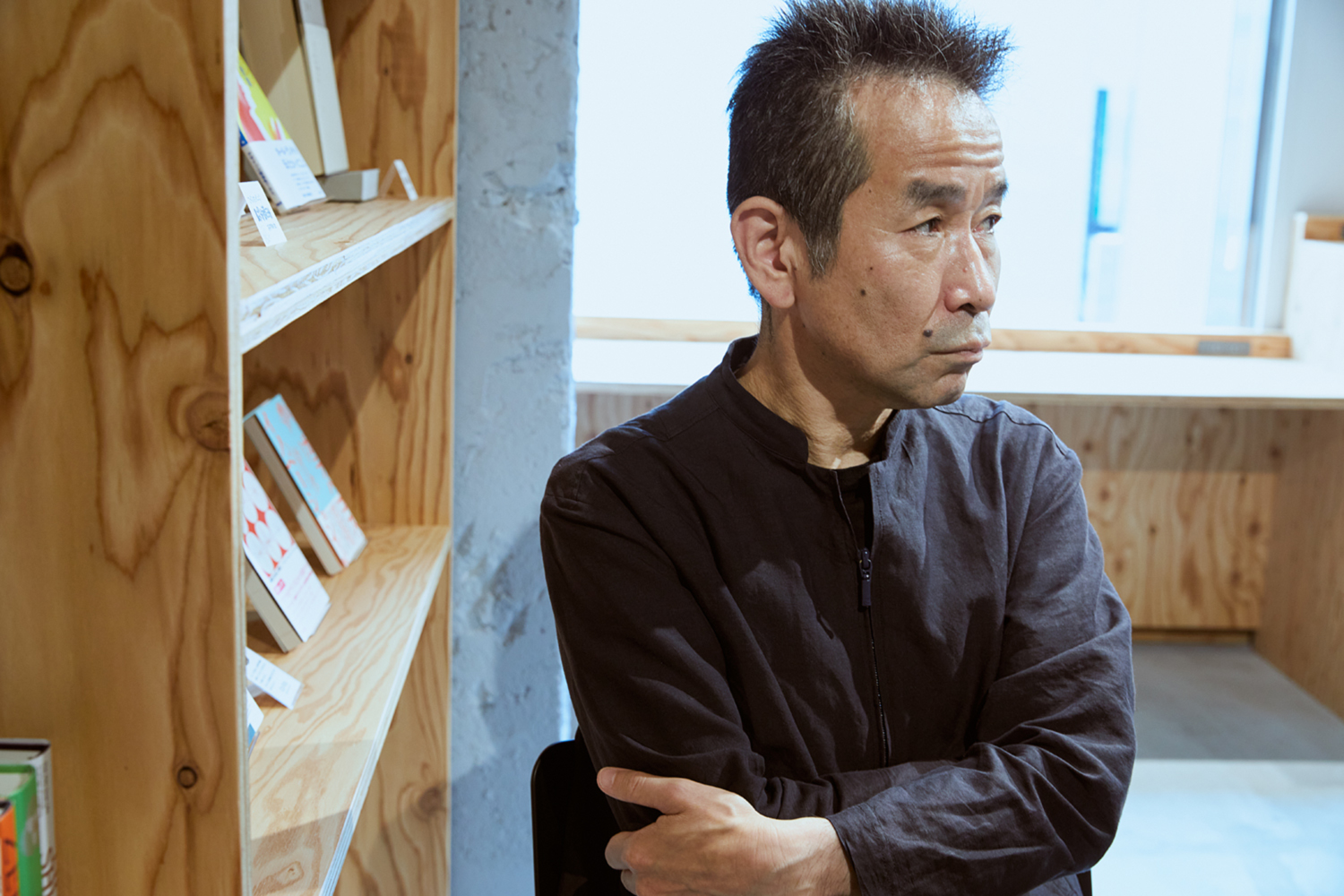
- Is there also some significance in putting on a production in 2022 of an illogical work like this which shares your concept of “nature,” Onodera-san? Is it becausein the present we have been continually buffeted by various natural disasters?
Onodera: I think it is inevitable. When it comes to portraying nature and people like I talked about before, in a world where this irrationality is rampant right now, fighting monsters feels very believable. Or maybe coexisting with them rather than fighting them. It means we exist together. Ultimately, this story turns into the story of a family, so in the broad sense it rolls into a single mass. In that sense I think you can interpret it in a variety of ways but if you take it as a simple romantic drama, I feel something is lacking. But having said that, it’s not a revenge drama either. I think it’s a work that crosses a variety of genres, and a work with the potential to combine various elements.
- I see. Now that pre-rehearsals have begun, are you in the process of exploring ways to captureand express that?
Onodera: Yes. We’re at the stage of discussing with Hairi-san and the team to figure out how to give it shape, so I can’t say for sure how we are going to go about it.I feel like I got the measure of it in the most recent pre-rehearsal.
- Katagiri-san, what is your impression of the work “Wuthering Heights”?
Katagiri: I was a kid, junior high school age or something like that. I read it and was really hooked, and read it lots more times. But when I read it again, it was completely different from the image I had of it back then. At the time I remember it as a romantic drama, although to a large extent I think that was my exaggerated adolescent fantasies at play. After all, the story progression in "Wuthering Heights" is based on the narrative monologue of the housekeeper Nelly. But you can’t say her narrative is based on a neutral point of view; I have come to think it includes many examples of her subjectivity, lies, hearsay, etc., which have confused readers for many years. When I asked Onodera-san if I was playing the role of the housekeeper, he said no (laughs).
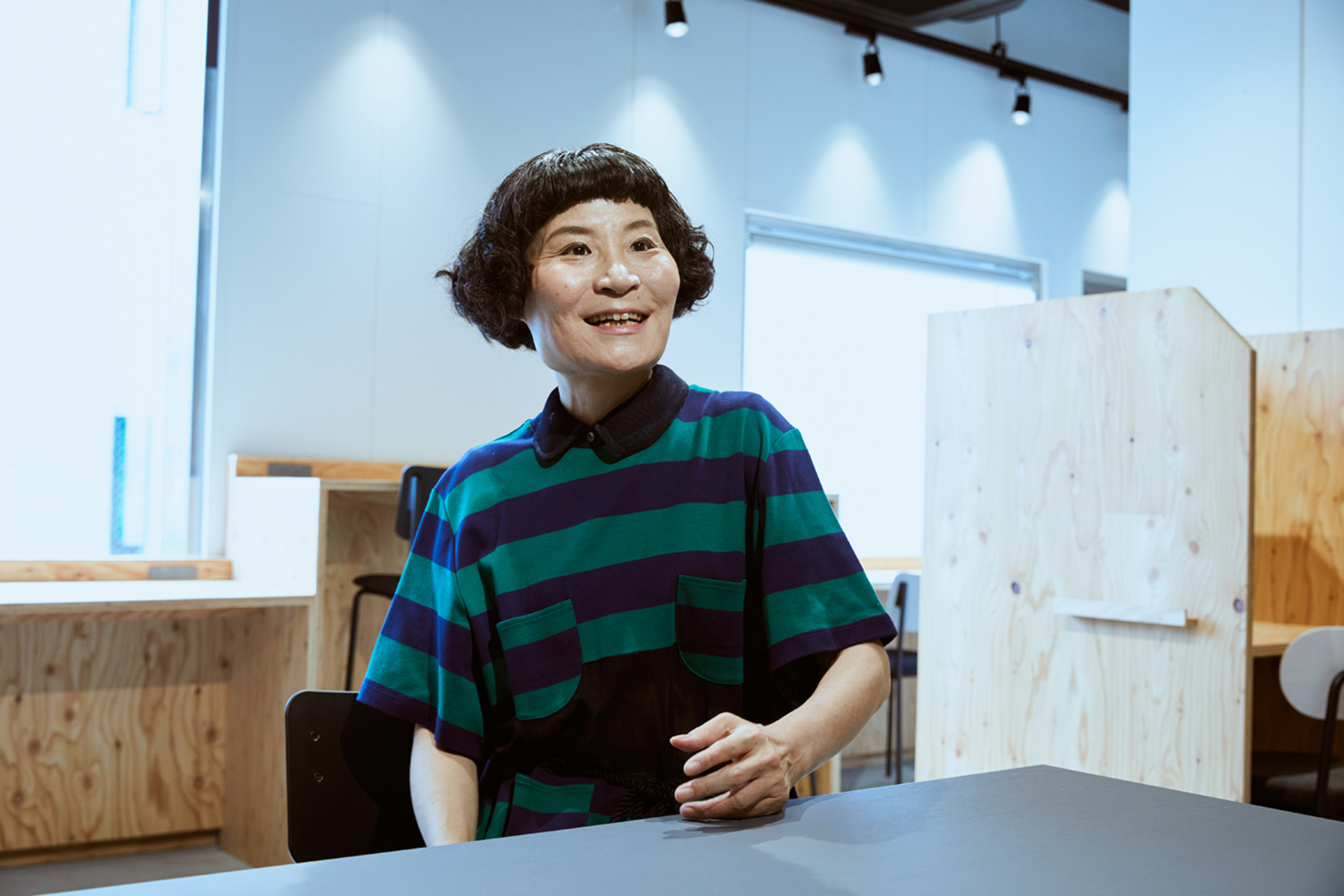
Onodera: I’m sorry (laughs). But it’s certainly a narrated story. I don't know if it's a story of reminiscences seen from the housekeeper's side of things, or if it's an irresponsible fabrication.
Katagiri: That’s what makes it so interesting. It could all be a lie.
Onodera: It could be the fantasy of someone, and maybe none of the characters exist. Another narrator is added partway through the story, so I think the structure is very well thought out.
- “Wuthering Heights” has been performed many times all over the world as a romantic drama. So your version will be different, and you're exploring the possibility of touching on a different side to the story.
Katagiri: I’m sure people will come see it thinking it is a love story. But it’s not. They will be let down. That’s another interesting thing about it.
- Onodera: I think if you sum up “Wuthering Heights” in one phrase the strong impression is that it is a romantic novel. Even if you apply the motives for the characters' actions to their loves and hates, it doesn’t make any sense. But I think that’s more interesting. And that's why I want people to read the original "Wuthering Heights" again, just like Hairi-san did. I think it's great to be able to see a story from a different angle.
To be continued in Part II
(Photographs: Ayako Masunaga/ Interview: Hiroyuki Funayose/ Words: Yuria Koizumi)
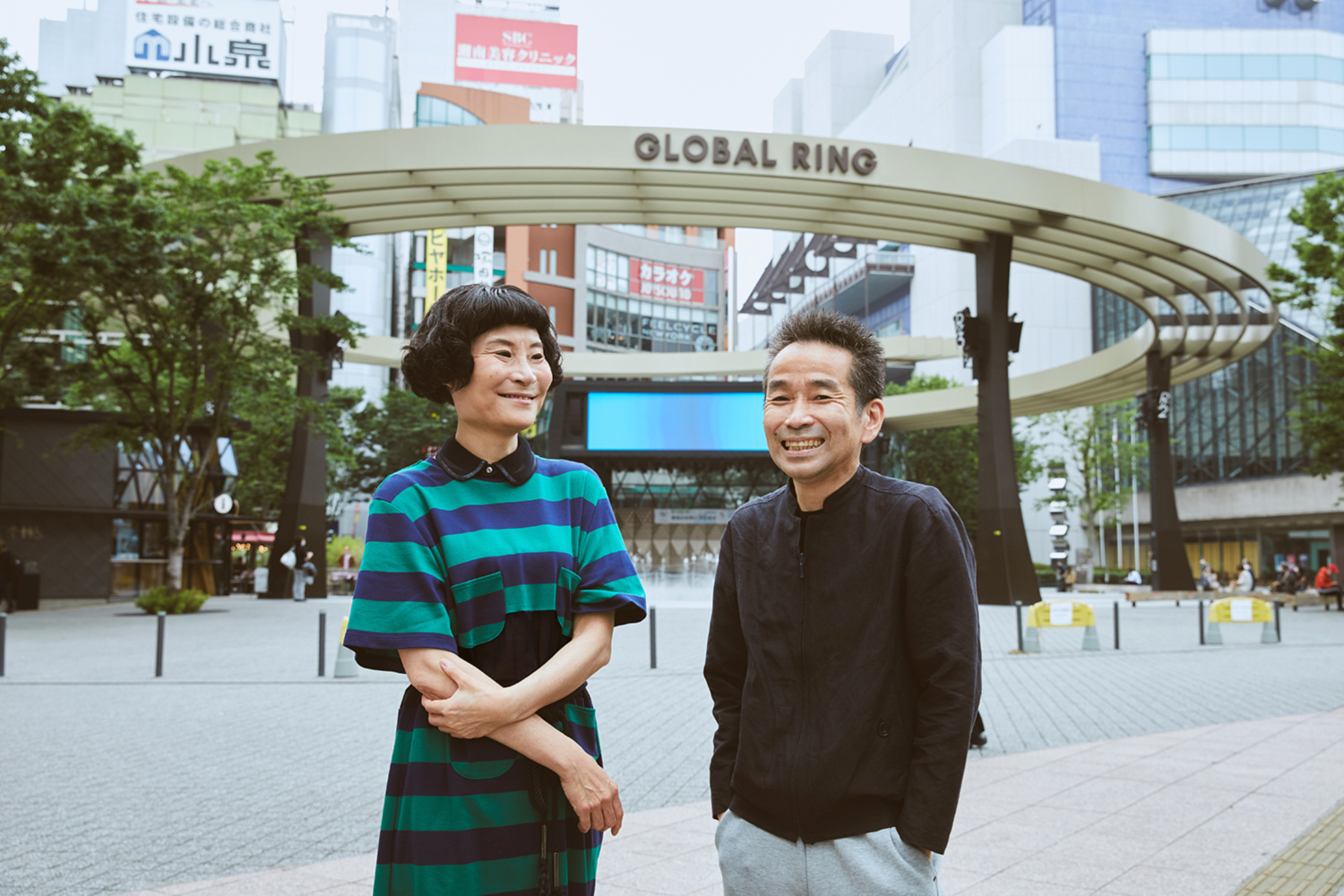
Shuji Onodera
Director, Leader of Company Derashinera. Studied at the Japan Mime Studio. From 1995 to 2006 he was a key member of the mime-based troupe Mizuto Abura.Afterwards he went to France to study under the Program of Overseas Study for Upcoming Artists offered by the Agency for Cultural Affairs, launching Company Derashinera upon his return to Japan. He has attracted attention for his distinctive directing based on mime movement. Onodera’s major directorial works include the Contemporary Noh Theatre Series IX “Taketori” (2018, Theatre Tram, other venues); the international coproduction “TOGE” (2021, Kanagawa Arts Theatre); and “Alice in Wonderland” (2017 /2022, New National Theatre, Tokyo, other venues). He actively engages in performance projects outside the theatre, such as outdoor performances and school tours. He also choregraphs for musicals and plays, and won the 18th Yomiuri Theatre Award Outstanding Staff Award. He was appointed Japan Cultural Envoy by The Agency for Cultural Affairs in 2015. He also handled choreography for Tokugawa Ieyasu played by Kinya Kitaoji in the 2021 NHK historical drama television series “Reach Beyond the Blue Sky” (Seiten o Tsuke).
Hairi Katagiri
Actor, born in Tokyo in 1963. While at university she made her stage debut as part of a theatre troupe while working part time as a ticket collector in a movie theatre. She has subsequently worked on a wide variety of project including commercials, movies and television drama. Principal stage and screen apperances include “Miren no yurei to kaibutsu –zaha to tsuruga” (“Unfulfilled Ghost and Monster –“Zaha”and" “Tsuruga””) (2021, written and directed by Toshiki Okada); "The Large Crow (Glass), Even" or "Duchamp's Glass"(2016, written by Juichiro Takeuchi/ directed by Shuji Onodera); “Kirei 〜The Woman Who Met Up With God” (2005, direction and script by Matsuo Suzuki); “Oil” (2003, direction and script by Hideki Noda); “Oh Brother, Oh Sister!” stage and screen versions (2013, 2014); the movie “Hold Me Back”(2020); the movie “Kamome Diner (2006); the TV drama “Chimu-Dondon”(2022); the TV drama “Ama Chan”(2013); the TV drama “Suika”(2003) and many more. She also writes, and has authored the books “Watashi no Matoka” and “Guatemala no Ototo” (Gentosha). Her book of essays demonstrating her love of cinema “Mogiri yo konya mo arigatou”(Kinema Junpo) won her the 82nd Kinema Junpo Best Ten Reader Award.
Outdoor Theater Performance “Wuthering Heights”
By Emily Brontë, Directed by Shuji Onodera
Translated by Takeshi Onodera “Wuthering Heights” Parts I and II (Kobunsha New Translations of Classicsseries)
Cast: Takashi Oshita, Kae Kubo, Yu Saito, Rina Sakiyama, Kotone Suginami, Ren Takeuchi, Musashi Tanno, Ami Chong, Aki Tsujita, Koichiro Tomioka, Sayaka Nakamura, TomaNishiyama, Mutsumi Hanawa, Kyoko Miyashita,
Hairi Katagiri
Period: Monday, Oct. 17 –Wednesday, Oct. 26, 2022
GLOBAL RING THEATRE (Ikebukuro Nishi-guchi Park Outdoor Theatre)
Tickets on sale from Saturday, Sept. 10 from 10:00 a.m.
Ticket prices: All seats unreserved (tax included)/Front: ¥500, Back : ¥100
Program/ticket details: https://tokyo-festival.jp/2022/en/program/arashigaoka




